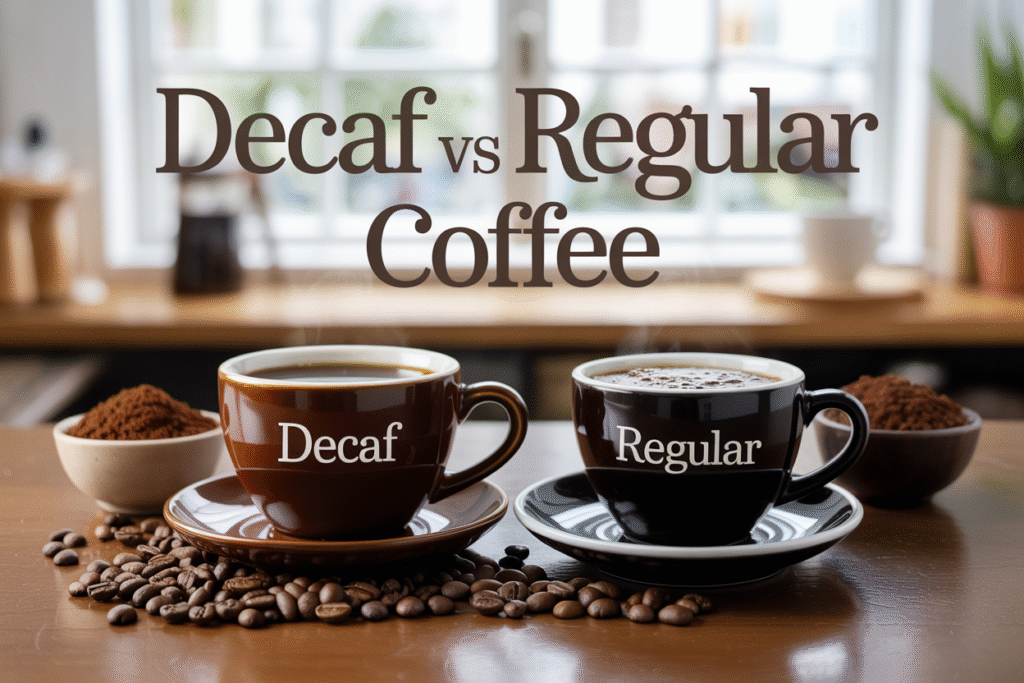Choosing between decaf ground coffee and regular coffee can make a real difference in your daily routine, especially if you’re dealing with caffeine sensitivity, sleep issues, or stomach problems. This guide is perfect for coffee lovers who want to understand the key differences between these two options and make the best choice for their needs.
You’ll discover how decaf coffee is made and exactly how much caffeine remains after processing. We’ll also break down the health advantages of switching to decaf, including why it might be easier on your digestive system. Plus, you’ll learn about the taste differences you can expect and get practical brewing tips to make the most of your decaf coffee grounds.
By the end, you’ll know which option works better for your lifestyle and how to brew the perfect cup every time.
Understanding Decaf Coffee Production and Caffeine Content

How Decaffeination Process Removes 97% of Caffeine
When you’re exploring decaf ground coffee options, you’ll discover that the decaffeination process is remarkably effective at removing caffeine while preserving the essential coffee flavors you love. The industry standard achieves an impressive 97% caffeine removal rate, which means your favorite decaf coffee grounds retain only about 3% of their original caffeine content.
This 97% reduction is achieved through specialized processing methods that target caffeine molecules specifically. The process begins with green coffee beans that are treated to extract the caffeine while maintaining the beans’ structural integrity and flavor compounds. Various techniques are employed, including water processing, chemical solvents, and carbon dioxide methods, all designed to achieve this consistent 97% reduction standard.
What Makes Coffee “Decaf” Versus Completely Caffeine-Free
You might wonder whether your decaf ground coffee is completely caffeine-free, but the reality is more nuanced. When you see “decaf” on your coffee packaging, it doesn’t mean zero caffeine content. Instead, it indicates that 97% of the original caffeine has been removed, leaving a small residual amount.
This distinction is crucial for your understanding of decaf products. Your best decaf coffee grounds will still contain trace amounts of caffeine – typically 2-5 milligrams per cup compared to the 95-200 milligrams found in regular coffee. This minimal caffeine presence means that even decaf coffee isn’t technically caffeine-free, though the amount is so small it rarely affects caffeine-sensitive individuals.
Quality Standards and Regulations for Decaffeinated Products
Your decaf ground coffee must meet specific regulatory standards that vary by region. In the United States, products labeled as decaf must adhere to strict guidelines that ensure consistent quality and accurate labeling. These standards govern not only the caffeine content but also the processing methods and final product specifications.
When you purchase the best decaf ground coffee in the U.S. market, you’re getting a product that meets these established standards. However, you should be aware that these regulations may differ from similar products sold in other countries, where ingredients and labeling requirements can vary significantly. This means your favorite decaf coffee grounds might have different specifications or processing standards depending on where they’re manufactured or sold.
It’s important to note that statements regarding potential health benefits of decaf coffee have not been evaluated by the FDA and are not intended to diagnose, treat, cure, or prevent any disease or health condition. This regulatory disclaimer ensures you have accurate expectations about what decaf products can and cannot claim regarding health effects.
Health Benefits of Decaf Ground Coffee Over Regular Coffee
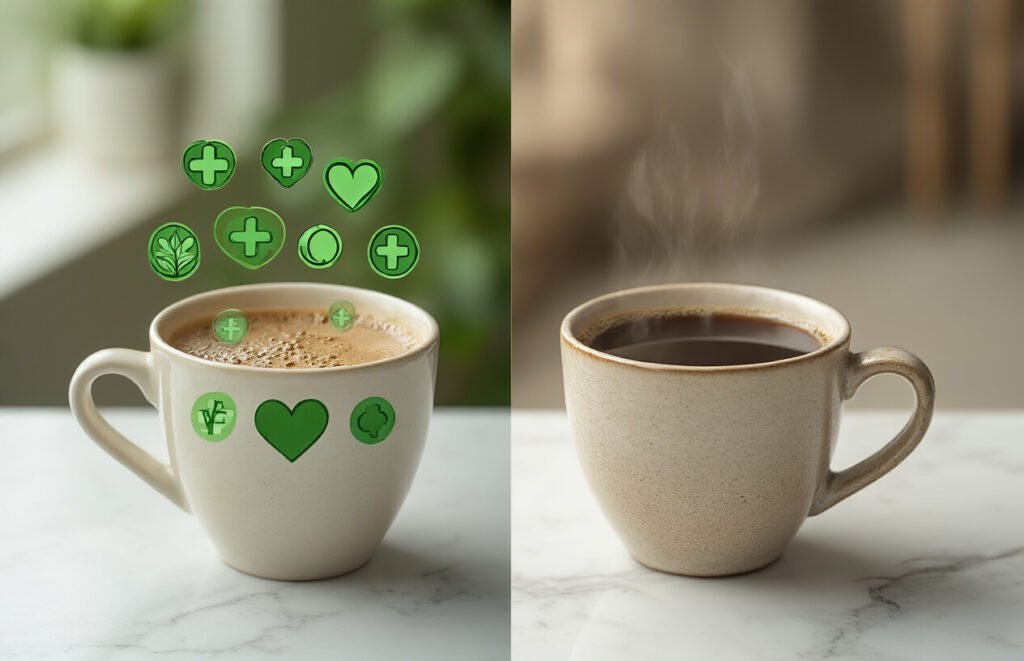
Reduced Stomach Irritation and Acid Reflux Prevention
When you choose decaf ground coffee, you’re making a smart decision for your digestive health. Decaf coffee grounds that are specially roasted can significantly reduce certain irritants that are commonly associated with stomach discomfort. The low acid content in quality decaf ground coffee helps prevent acid reflux, allowing you to enjoy your morning ritual without the burning sensation or discomfort that often follows regular coffee consumption.
If you’ve been struggling with heartburn after your daily coffee, switching to the best decaf ground coffee options can provide immediate relief. The specially formulated roasting process eliminates many of the compounds that trigger digestive issues, making your coffee experience much more pleasant and comfortable.
Elimination of Caffeine-Related Jitters and Sleep Disruption
Your daily coffee routine doesn’t have to come with unwanted side effects. With decaf coffee grounds, you can enjoy multiple cups throughout your morning without experiencing the jitters that caffeine typically causes. Many coffee lovers find they can comfortably drink 2 or 3 cups of decaf in the morning without any negative effects on their nervous system or sleep patterns.
The absence of caffeine means you won’t experience the crash that often follows regular coffee consumption, and your sleep schedule remains undisturbed. This makes the best decaf coffee grounds an ideal choice for maintaining your coffee ritual while preserving your overall well-being.
Suitable Option for People with GERD and Sensitive Stomachs
If you suffer from GERD (Gastroesophageal Reflux Disease) or have a sensitive stomach, decaf ground coffee offers you a way to continue enjoying coffee without aggravating your condition. The smooth, gentle nature of quality decaf coffee grounds makes them particularly suitable for those dealing with ulcers or other stomach sensitivities.
You’ll find that decaf coffee is described as being exceptionally smooth and easy on your stomach, allowing you to maintain your coffee-drinking habits without compromising your digestive health. This gentleness doesn’t mean sacrificing flavor – it simply means you can enjoy your coffee without the associated discomfort.
Benefits for Those on Medications Affected by Caffeine
Your medication regimen doesn’t have to interfere with your love of coffee when you choose the best decaf ground coffee. Decaf coffee grounds provide an effective solution for those whose medications are affected by caffeine interactions. You can continue to enjoy the ritual and taste of coffee while ensuring your medications work as intended without any caffeine-related interference or complications.
Taste and Flavor Profile Differences
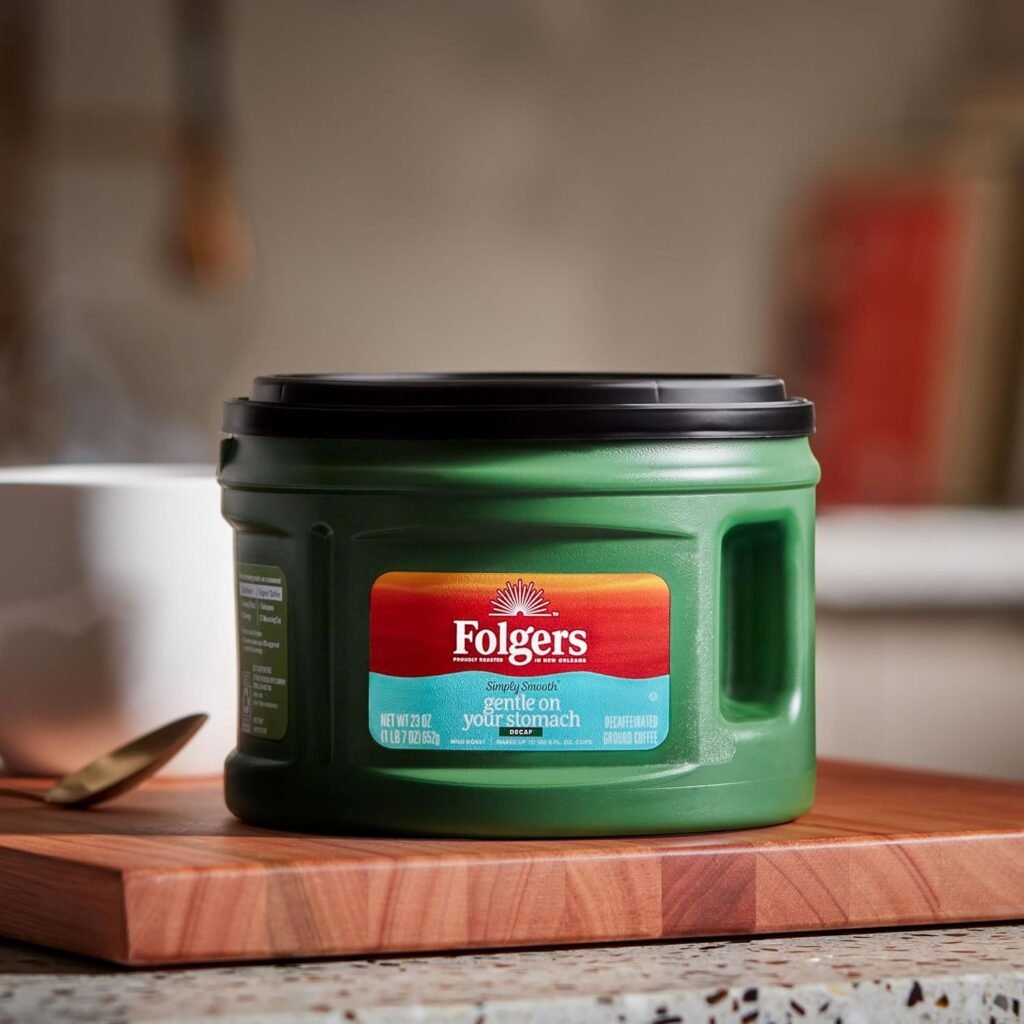
How Decaffeination Affects Coffee Flavor and Strength
When you compare decaf ground coffee to regular coffee, you’ll notice significant differences in flavor intensity and overall strength. The decaffeination process naturally reduces the robustness that caffeine contributes to coffee’s taste profile. This results in a noticeably milder drinking experience that many coffee enthusiasts find appealing, especially those who prefer less aggressive flavors in their daily brew.
Smooth and Mild Taste Characteristics of Quality Decaf
Quality decaf coffee grounds, such as Folgers Simply Smooth Decaf, deliver a distinctly mellow and balanced flavor that sets them apart from their caffeinated counterparts. When you brew the best decaf ground coffee, you’ll experience a smooth taste that lacks the bitter edge often associated with stronger coffee varieties. This mild roast profile makes decaf an excellent choice if you don’t enjoy intensely strong coffee but still want to savor rich coffee flavors.
The best decaf coffee grounds are specifically crafted to maintain flavor integrity while eliminating harshness. You’ll find that many describe quality decaf as both mild and flavorful, offering the perfect balance for those seeking a gentler coffee experience without sacrificing taste satisfaction.
Brewing Recommendations for Optimal Flavor Extraction
To maximize your decaf coffee grounds’ flavor potential, focus on brewing techniques that enhance the natural mellow characteristics. Since decaf coffee tends to be more delicate than regular coffee, you’ll want to adjust your brewing parameters accordingly to extract the optimal flavor profile from your chosen decaf ground coffee.
Consumer Satisfaction with Decaf Taste Compared to Regular Coffee
Customer feedback consistently highlights satisfaction with decaf’s smooth, non-bitter taste profile. You’ll find that consumers particularly appreciate how the best decaf ground coffee provides a pleasant drinking experience without the intensity that can make regular coffee overwhelming for sensitive palates.
Special Processing Techniques for Better Digestibility
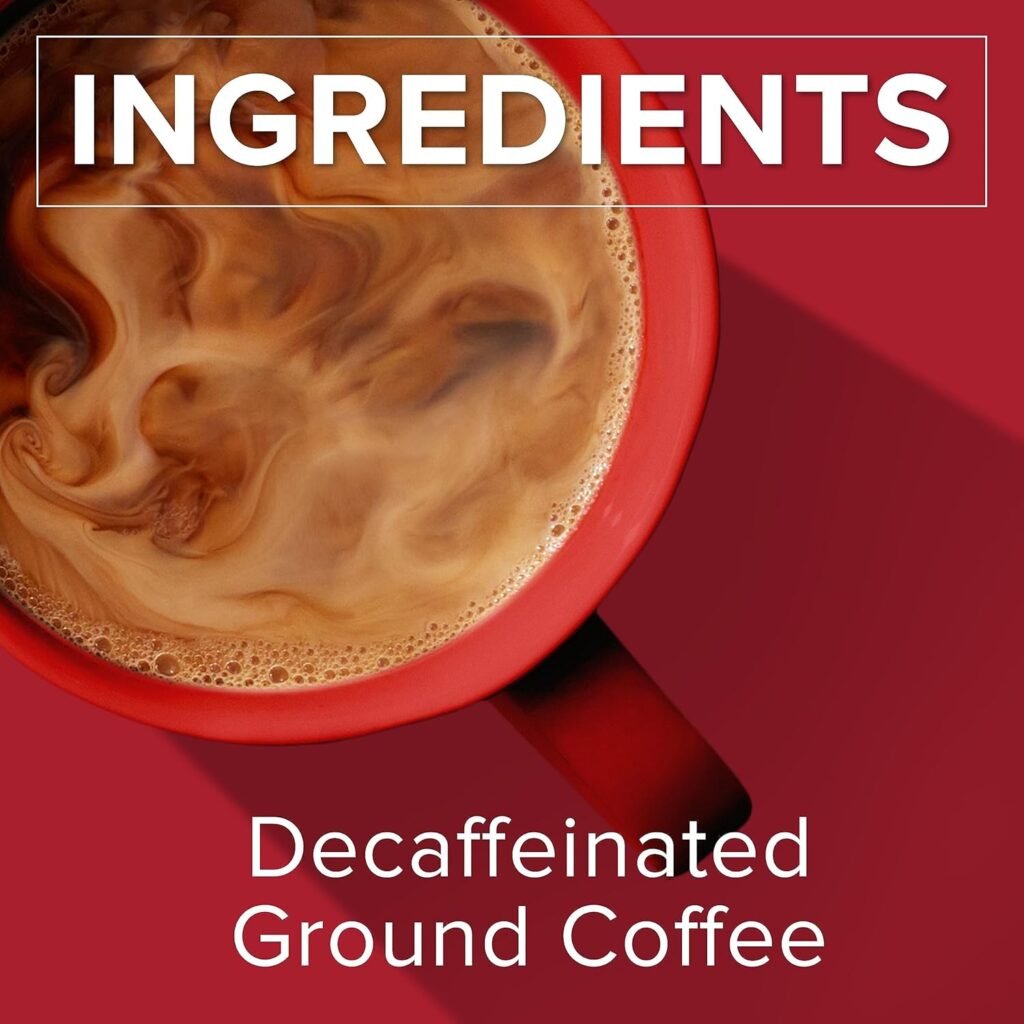
Select Bean Choosing Methods for Reduced Irritants
When you’re selecting the best decaf ground coffee for sensitive digestion, understanding bean selection becomes crucial for your comfort. Coffee producers like Folgers employ specific methods to choose beans that naturally contain fewer compounds known to irritate sensitive stomachs. You’ll find that these select beans undergo careful screening processes where manufacturers identify varieties with lower concentrations of certain organic acids and compounds that can trigger digestive discomfort.
The selection process focuses on beans that have naturally developed fewer irritants during their growth and processing stages. When you choose decaf coffee grounds that have been produced using these selective methods, you’re investing in a product that prioritizes your digestive well-being alongside flavor quality.
Special Roasting Processes That Minimize Stomach Discomfort
Your choice of decaf ground coffee significantly benefits from specialized roasting techniques designed specifically to reduce stomach irritation. The roasting process employed for products like Folgers Simply Smooth Decaf Coffee involves carefully controlled temperature and timing parameters that break down compounds responsible for digestive upset.
During this special roasting process, you’ll benefit from the reduction of chlorogenic acids and other compounds that can cause stomach discomfort in sensitive individuals. The roasting technique transforms the bean’s chemical composition, creating a smoother drinking experience for your digestive system. When you brew best decaf coffee grounds that have undergone this specialized roasting, you’re getting a product that has been intentionally crafted to minimize the harsh elements that might otherwise cause you discomfort.
Low Acid Coffee Production Benefits
You’ll discover that low acid production methods in decaf ground coffee manufacturing offer significant advantages for your digestive health. The low acid content achieved through specialized processing contributes directly to better digestibility and substantially less stomach upset during and after consumption.
When you select best decaf ground coffee with reduced acidity levels, you’re choosing a product that allows you to enjoy your coffee ritual without the concern of acid-related digestive issues. This low acid characteristic makes your coffee experience more pleasant and accessible, particularly if you’ve previously experienced sensitivity to regular coffee’s higher acid content.
Impact of Processing on Overall Coffee Quality
The specialized processing techniques used to create digestible decaf coffee grounds don’t compromise the overall quality of your coffee experience. Instead, these methods enhance certain aspects of the coffee while maintaining the rich flavors and aromas you expect from premium decaf ground coffee.
You’ll notice that the careful attention to processing details results in a well-balanced product that delivers both comfort and taste satisfaction. The quality improvements achieved through these specialized techniques ensure that your choice to prioritize digestibility doesn’t mean sacrificing the coffee experience you desire from the best decaf coffee grounds available in the market.
Cost Analysis and Value Considerations

Price comparison between decaf and regular ground coffee
When you’re evaluating the cost of decaf ground coffee versus regular options, you’ll find that decaf typically carries a premium price due to the additional processing required to remove caffeine. Looking at specific market examples, a pack of 6 (23-ounce AromaSeal Canisters) of Folgers Simply Smooth Decaf Mild Roast Ground Coffee was priced at $84.90, which breaks down to approximately $0.62 per ounce. This pricing reflects the specialized decaffeination processes that manufacturers must implement, making best decaf ground coffee options generally more expensive than their caffeinated counterparts.
Bulk purchasing advantages and savings opportunities
Your wallet will appreciate the significant savings you can achieve through bulk purchasing strategies. The same Folgers Simply Smooth example demonstrates this principle perfectly – customers reported substantial savings when buying in bulk compared to purchasing individual cans. The 6-pack option offered a 7 percent savings from the typical retail price of $90.96, representing real value for your coffee budget. When you commit to larger quantities of decaf coffee grounds, you’re essentially negotiating better per-unit pricing that can make premium decaf options more affordable for regular consumption.
Long-term value for health-conscious consumers
As a health-conscious consumer, you should consider the long-term value proposition beyond just the immediate price tag. While best decaf coffee grounds may cost more upfront, customers consistently report finding good overall value in these products. The investment becomes worthwhile when you factor in the health benefits and reduced caffeine-related side effects that decaf provides, especially if you’re someone who enjoys multiple cups throughout the day without wanting the stimulant effects.
Availability challenges in retail stores versus online
You’ll likely encounter frustrating availability challenges when searching for quality decaf options in traditional retail grocery stores. Many consumers report significant difficulties finding their preferred decaf ground coffee brands in physical locations, making online purchasing the primary and often only viable option. This retail scarcity can impact your purchasing flexibility and may require you to plan ahead for your coffee needs, as immediate store runs for decaf aren’t always successful.
Brewing Guidelines and Best Practices
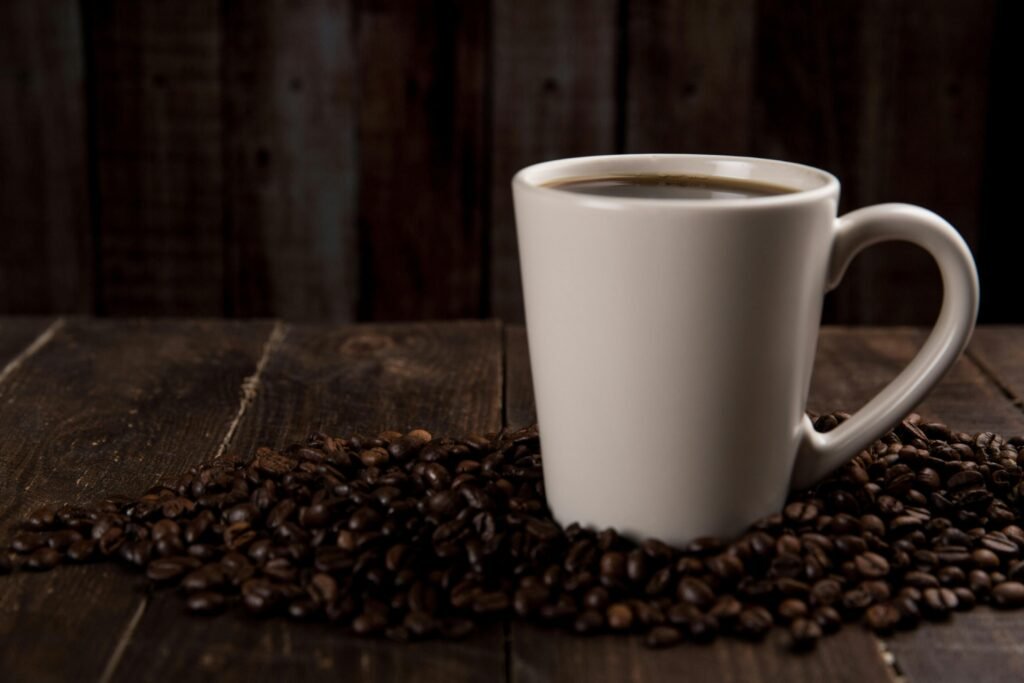
Optimal coffee-to-water ratios for decaf ground coffee
When brewing your decaf ground coffee, achieving the perfect strength requires precise measurements. You should use one tablespoon of decaf coffee grounds per one 6 fluid ounce serving of cold water. This standard ratio ensures optimal extraction while maintaining the delicate flavor profile that makes best decaf ground coffee enjoyable.
For larger batches, you can scale up using 1/2 cup of decaf coffee grounds per 10 servings of cold water. If you prefer a stronger coffee taste, add one additional tablespoon of decaf grounds for every 10 servings. This adjustment allows you to customize the intensity without overwhelming the subtle characteristics that distinguish quality best decaf coffee grounds from regular varieties.
Compatible brewing methods and equipment considerations
Your decaf ground coffee works well with all coffee makers and brewers, providing versatility in your brewing options. However, you need to consider the grind size compatibility with your specific equipment. Some customers have reported issues when using very finely ground decaf coffee in certain machines, particularly Mr. Coffee makers, where the basket can clog and overflow, resulting in a weaker brew.
To avoid these complications, ensure your grind size matches your brewing method. Automatic drip coffee makers generally work best with medium grinds, while French presses require coarser grounds for optimal extraction.
Storage recommendations for maintaining freshness
Proper storage is crucial for preserving your decaf ground coffee quality. AromaSeal canisters provide excellent freshness protection, helping maintain the flavor integrity of your decaf grounds over time. Keep your container sealed tightly and store it in a cool, dry place away from direct sunlight and strong odors.
Serving size calculations and daily consumption limits

A standard 23-ounce canister of best decaf ground coffee yields up to 180 suggested strength 6 fl oz servings. This calculation helps you plan your purchases and understand the value of your decaf coffee investment. Since decaf contains minimal caffeine, you have more flexibility with daily consumption compared to regular coffee, though moderation remains advisable for optimal health benefits.
Whether you choose decaf or regular ground coffee ultimately depends on your individual health needs, taste preferences, and lifestyle. Decaf ground coffee offers significant advantages for those with sensitive stomachs, GERD, or caffeine sensitivity, with specially processed options like Folgers Simply Smooth providing up to 97% caffeine reduction while maintaining flavor integrity. The lower acidity levels and reduced irritants make decaf an excellent choice if you experience heartburn or digestive discomfort from regular coffee.
Your brewing technique and coffee quality matter just as much as your caffeine choice. Both decaf and regular coffee can deliver satisfying taste experiences when you follow proper brewing guidelines and select quality beans. Consider your health conditions, budget constraints, and daily routine when making your decision. If you’re dealing with stomach sensitivity or need to limit caffeine intake, the investment in quality decaf ground coffee will provide you with the coffee experience you love without compromising your well-being.K
Keep following our blog for fresh updates on your next perfect cup of coffee!

